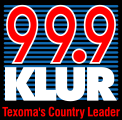
The images of the Sept. 11, 2001, attacks are seared into the minds of Americans.
The methodical, play-by-play-like breakdown of the planes striking the towers is an unforgettable scene for those who watched the coverage.
However, there is a group of Americans who don’t have the same haunting memories. For many U.S. middle and high school students, Sept. 11, 2001, is a historical event, a lesson to be learned in school or gleaned from a textbook.
Sunday marks the 15th anniversary of the event, meaning a 13-year-old eighth-grader wasn’t alive when it happened.
During this time of the year, many history teachers are preparing to deliver a lesson on Sept. 11. That lesson can be deeply personal for many teachers and parents. It can be so emotional that some even forgo teaching it.
“It becomes emotional very quickly,” said Andrew Polk, a professor and the coordinator of history education at Middle Tennessee State University.
Polk, who advises local teachers on how to approach Sept. 11 in their classrooms, said this year’s lessons were particularly contentious.
“I’ve had these conversations with teachers just because it’s the 15th anniversary, and it’s even more sensitive in an election cycle,” he said. “It’s so much more controversial, and the teachers are in a bind.”
Subjects like terrorism and the United States’ relationship with Islam and the Middle East – the core takeaways from a lesson on Sept. 11 – are consequential to the 2016 presidential race.
How parents, who are likely more political animals than their preteens, will receive a Sept. 11 lesson is often a major concern for teachers. Polk said that, because history classes rarely make it to modern history (think post-1970), a teacher’s lesson on Sept. 11 is usually a break from chronology and a personal decision for their classroom.
“Parents are the biggest part of determining if it’s worth it,” he said. “It’s a really volatile subject. People stake personalities on their understanding of what America is and what Islam is, even when it has little to do with historical aspects.”
The professor said his advice to teachers was to take painstaking efforts to document their lesson and to approach their administration if warranted.
“You need to read your location. You have to make a decision if it’s worth it and your administration will allow it,” he said. “You should have good documentation, so, when you get called to the principal’s office with a complaint, you have what you taught.”
Even if a teacher is brave enough to prepare a special, in-detail lesson on Sept. 11, educational materials can be woefully inadequate.
Textbook publishers try to “stay away from controversy,” according to Polk, and many dedicate an unadventurous, and short section to the event.
Take Civics Today: Citizenship, Economics & You, a social studies book for seventh- and eighth-graders still used in some Alabama schools. Not only was it published in 2005, but it only mentions Sept. 11 on three pages, the most comprehensive of which contains a two paragraph blurb.
To be fair, Civics Today is focused mostly on what it means to be an American citizen, not history, but teachers across the nation can oftentimes find that old, vague or American-centric textbooks like it are their only available tools.
The internet offers reprieve. The National September 11 Memorial & Museum has free lesson plans on its website.
Meanwhile, a vast resource of content is available on platforms such as YouTube for teachers willing to sift the wheat from the chaff.
Regardless of what tools educators decide to use, they’ll still be faced with coming to terms with the palatable divide in history that separates their visceral memories from their students’ lack thereof.
“For the vast majority of Americans, Sept. 11 is a collection of images. It’s those images – planes flying into buildings over and over, smoke swallowing people – but, for school children, it’s an historical event and nothing else,” Polk said. “There’s not much difference talking about Sept. 11 and Ronald Reagan’s term as president to younger students.”
– Newschannel 6





